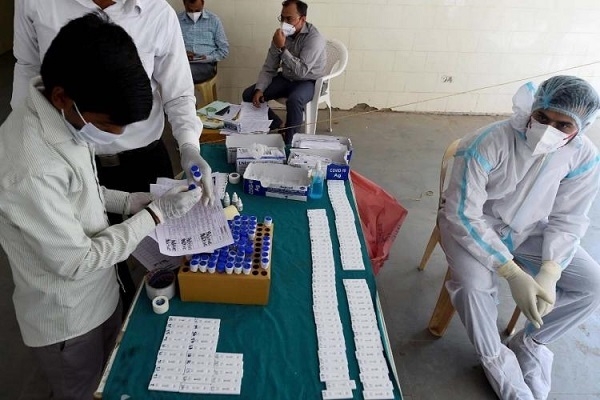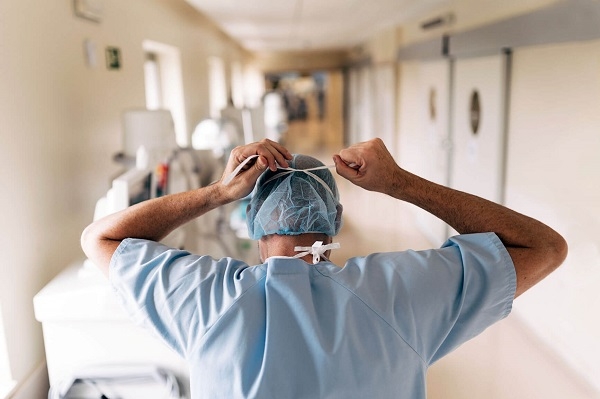WATCH- COVID-19 FAQ- All about the second wave, variants and staying safe!
Total Views |
It has been over a year since the COVID-19 pandemic began and like many countries, India too is facing a sudden spike in daily infections, even as vaccination drives are underway. Compared to 2020, the daily infections being reported this year, so far, are rising at an alarming rate, over two lakh patients across India tested positive in the last two days indicating a second wave of infections. And unlike the characteristics of the infection reported in 2020, this year, doctors and experts have pointed out that the younger population and more members in one family are being infected, and more patients are showing at least one or two symptoms of COVID-19.
There is no absolute, scientific answer to explain the sudden surge in COVID-19 cases as yet. Experts attribute this to the recently detected variants of the COVID-19 virus as well as the public lowering their guard against the infection due to the 2020 lockdown fatigue. Since March 2021, restaurants, offices, and shops have opened up and people have also been attending religious and political gatherings in droves without masks or maintaining appropriate physical distance. Amid the spike, uncertainties over the behaviour of the virus, and with only nascent research, experts are asking people to get vaccinated immediately and urging the government to expand the vaccine coverage across all age groups.

Here is a guide to COVID-19, the virus variants detected so far, and what you can do to stay safe amid concerns over the second wave.
The new variants: Is it a cause for concern?
All RNA viruses (like the coronavirus) undergo replication in the host cell of an infected person over time, which is not uncommon. As the virus replicates, it could lead to small errors (changes or mutations) in the virus’s genetic code, generating a variant of the original virus. Some variants are insignificant and disappear, while some persist. One of the first variants was detected in the United Kingdom in September 2020, when the infections in country were at peak. It is one of the widely detected variants among other new variants that have emerged in several countries.
In India, variants such as B.1.1.7 (first detected in the UK), B.1.135 (first detected in South Africa) and P.1 (first detected in Brazil) have been detected. Incidentally, India also reported double mutants (classified as B.1.617) in March 2021, which means, a variant with two different mutations found in other countries. The B.1.1.7 variant is being more commonly detected in India, followed by the double mutation variant. While at least 10 states have recently detected the double mutations, about 18 to 19 states have reported the UK variant, reported the Union Health Ministry.
While there is no definitive link between the current surge and variants just yet, studies and experts across the globe have said that the B.1.1.7 variant is estimated to be more infectious or transmissible by 43-90%, with the reproduction number or R factor (how fast the virus spreads in a population) up by 1.35. Scientifically, the R factor above one indicates that the disease is spreading at a faster rate. More studies on the double mutant variant are still underway.
However, two recent studies published in The Lancet, a peer-reviewed medical journal, also indicated the B.1.1.7 variant may be more transmissible but not deadlier to make people more severely ill and probably cause death. A few studies in the early stages of the detection had found the variant to be deadlier, although it required more rigorous monitoring.
Symptoms to look out for
Based on clinical anecdotes, doctors had earlier told TNM that unlike 2020 when more patients were asymptomatic, in 2021, a majority are exhibiting at least one or two COVID-19 symptoms, including mild and moderate ones, although it is unclear if it is linked to the variant(s). They, however, have not seen any new or different symptoms apart from the commonly reported signs in 2020 — fever, cough, shortness of breath, sore throat, fatigue, body ache, diarrhoea, vomiting, loss of smell or taste.

1. The RT-PCR (Reverse Transcriptase Polymerase Chain Reaction) test, which includes nasal and throat swabs, is the gold standard to detect COVID-19. The results could take up to 24-72 hours. Experts suggest taking the test on the fifth or seventh day after suspected exposure since the viral load is generally at a peak then. Do not, however, wait if the clinical suspicion is high. If tests return positive, it is also important to ask the testing lab to mention the cycle threshold or CT factor, which is a marker to show the viral load. Lower the CT value, the higher the severity (more viral RNA) or chances of progressing it into a severe case.
2. The Rapid Antigen Test, which involves nasal swab, gives results in 30 to 45 minutes. If the test returns positive, the person has COVID-19. If the test returns negative, it should be followed up with the RT-PCR test.
3. TrueNat is a comprehensive testing system to screen and confirm COVID-19. The diagnostic machine uses nose or throat swabs. The turnaround results are quicker and tests are cheaper. All results are considered true positive and true negative; no further confirmation with an RT-PCR test is required. CBNAAT or Cartridge Based Nucleic Acid Amplification Test, like TrueNat, employs real-time RT PCR technology. Both the tests are costlier than RT-PCR and antigen tests, and these cannot be used for travel purposes.
4. Apart from RT-PCR, some hospitals use secondary lines of investigation, including CT scan and blood test, to confirm. Check the list of COVID-19 testing labs approved by the Indian Medical Council of India (ICMR) here.
Will Remdesivir as COVID-19 therapy help?
India has approved the use of Remdesivir, an antiviral drug, for COVID-19 treatment. It has been listed as ‘investigational therapy’ as its benefits are still being investigated. Administered as an injection, Remdesivir helps in expediting the recovery process but cannot be used as standard care for the infected as it does not have any proven life-saving benefits. However, according to the Indian Medical Council for Research (ICMR), the intravenous drug is effective only if it is administered within the first 10 days of infection.
(Source- Ministry of Health, WHO)
.
.
